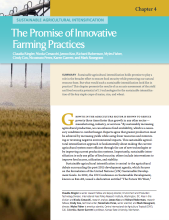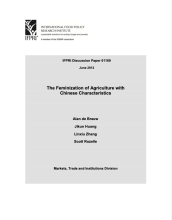Land Library Search
Through our robust search engine, you can search for any item of the over 73,000 highly curated resources in the Land Library.
If you would like to find an overview of what is possible, feel free to peruse the Search Guide.
/ library resources
Showing items 1 through 9 of 11.Climate change is a significant and growing threat to food security—already affecting vulnerable populations in many developing countries, and expected to affect ever more people in more places, unless action is taken beginning today.
Malnutrition costs the world trillions of dollars, but global commitment to improving people’s nutrition is on the rise, and so is our knowledge of how to do so. Over the past 50 years, understanding of nutrition has evolved beyond a narrow focus on hunger and famine.
Smallholder farmers have a vital role to play in global food security and nutrition, and in supporting a range of development and climate change goals.
Sustainable agricultural intensification holds promise to play a
role in the broader effort to ensure food security while protecting our natural
resource base. But what would such a sustainable intensification look like in
This study uses five rounds of household panel data from Tigray, Ethiopia, collected in the period 1998–2010 to assess the impacts of a land registration and certification program that aimed to strengthen tenure security and how it has contributed to increased food availability and, thus, food se
This paper starts by reflecting on the concept and measurement of women’s empowerment and then reviews some of the structural interventions that aim to influence underlying gender norms in society and eradicate gender discrimination.
The 2011 Global Food Policy Report is a new annual IFPRI publication that provides a comprehensive, research-based analysis of major food policy challenges at the global, regional, national, and local levels.
The objectives of this paper are to help build a picture of the role of women in China’s agriculture, to assess whether or not agricultural feminization has been occurring, and if so, to measure its impact on productivity.
We use data from the 2007 Bangladesh Demographic and Health Survey to examine the relationship between women’s status and nutrition in Bangladesh using indicators of empowerment such as mobility, decisionmaking power, and attitudes toward verbal and physical abuse.









